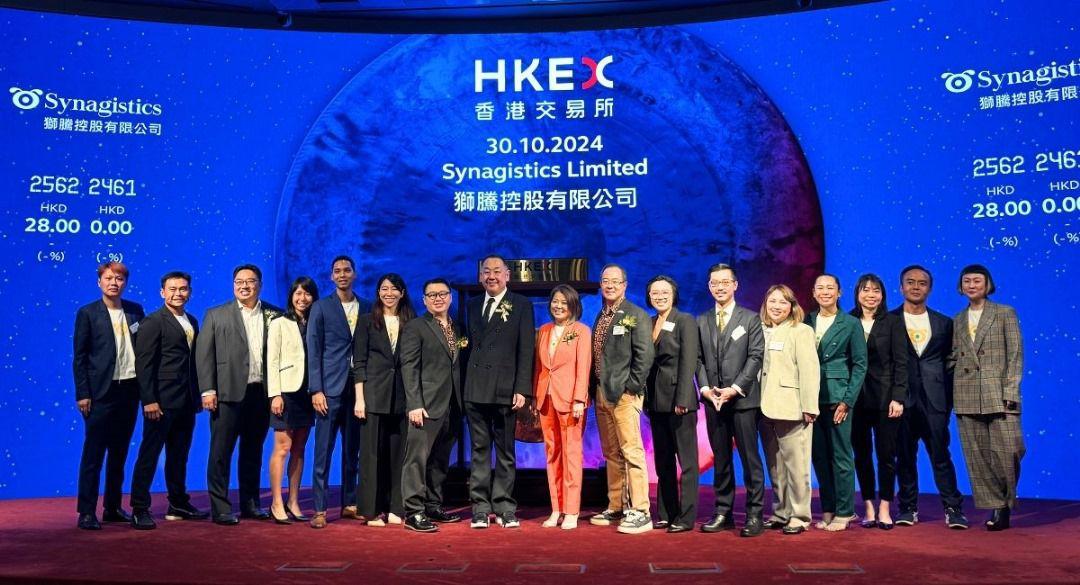Behind the scenes of Synagistics’ historic de-SPAC listing

When Synagistics decided to pursue a Hong Kong de-SPAC transaction, it marked a historic milestone not only for the company but for the city’s de-SPAC regime.
As the first de-SPAC there, Synagistics’ listing offers valuable insights for startups considering a similar journey and underscores the uniqueness of Hong Kong’s de-SPAC framework.
For Synagistics, its de-SPAC last October represented a strategic opportunity for the Singapore-based data-driven digital solutions provider. Co-founder Zanetta Lee said the listing gave it a platform to grow its business in both Southeast Asia and Greater China.
Why Synagistics Chose Hong Kong’s De-SPAC Route
One reason why a Hong Kong de-SPAC stood out to Synagistics from other options, was because of Hong Kong Acquisition Corp., the SPAC that Synagistics worked with.
Synagistics’ leaders wanted the opportunity to team up with Hong Kong Acquisition Corp.’s founders who have extensive banking and finance experience, former Hong Kong Monetary Authority Chief Executive Dr. Norman Chan and Katherine Tsang, former Greater China of Standard Chartered Bank Chairperson.
Synagistics’ founders were also drawn to the framework for Hong Kong de-SPACs, which was implemented in January 2022. Among other requirements, the regime needs a minimum PIPE to be raised before the de-SPAC transaction, a measure put into place by Hong Kong Exchanges and Clearing Limited (HKEX) to mitigate risks and prevent share price speculation or inflation.
From a business perspective, the Hong Kong de-SPAC gave Synagistics more access to the Greater China market, meaning increased opportunities to work with Chinese brands that want to grow their presence in Southeast Asia. Due to changing geopolitical and economic dynamics, investors in China and Hong Kong were also keeping an eye out for high-growth, Southeast Asia-focused tech companies like Synagistics.
How Hong Kong’s de-SPACs differ from other markets
HKEX’s de-SPAC listing framework was developed to make Hong Kong a more attractive listing destination for applicants. It was written after SPAC transactions had been on the rise in markets like the U.S., enabling HKEX to learn from their experiences.
For example, the HKEX saw rising concern in the U.S. over issues like misaligned interests between SPAC promoters and shareholders, shareholder dilution and misleading statements resulting from inadequate due diligence.
Hong Kong’s de-SPAC framework was developed having considered these issues. For example, it increases transparency by requiring the successor company (or the company resulting from the de-SPAC transaction) to meet all new listing requirements. This includes issuing a listing document and assuming responsibility for the disclosure.
In fact, the U.S. Securities and Exchange Commission recently adopted a similar requirement that means de-SPAC targets must be a co-registrant with the SPAC and assume the same responsibility for disclosures in the registration statement filed by the SPAC.
There are other key differences regarding professional investors between Hong Kong, the U.S. and Singapore:
● Hong Kong requires a minimum amount of third-party independent investment that constitutes a certain percentage of the negotiated value of a de-SPAC target, or HK$500 million, whichever is lower; and more than 50 percent of the independent PIPE investment must come from at least three sophisticated investors. In the U.S., there is no mandatory PIPE investment, while Singapore requires an independent financial advisor to be appointed in the absence of a PIPE investment.
● The U.S., Singapore and Hong Kong differ in their successor company shareholder distribution requirements. Singapore requires at least 500 public shareholders and the U.S. requires at least 400 round lot holders. In comparison, Hong Kong needs at least 100 professional investors.
HKEX emphasizes having professional investors be part of the de-SPAC process to mitigate risks associated with SPACs, like share price volatility from market speculation. Abhishek Bakshi, Senior Vice President, HKEX Global Issuer Services, added that professional investors are better able to assess, monitor and mitigate the combination of risks associated with SPACs.
A New Pathway for Startups
Because HKEX’s regulatory environment for de-SPACs is relatively stringent compared to other markets, it provides guidance to companies throughout the process. Bakshi said its listing division is “highly experienced and actively works with companies to address any concerns regarding regulatory requirements,” giving hands-on support to both acquirer and target companies through the entire de-SPAC process.
HKEX is also committed to market education about Hong Kong’s SPAC framework to ensure the ongoing and healthy development of Hong Kong’s capital market.
According to DealStreetAsia, more than half of Southeast Asia companies that decided to list overseas between 2014 and 2023 did so at HKEX. One of the reasons a significant number of Southeast Asian startups went public at HKEX were listing reforms which commenced in 2018. The reforms were specifically designed to cater to a wider spectrum of innovative and new economy companies. These reforms have positioned Hong Kong as a more attractive international listing destination.
Now they have another reason to go public there. Hong Kong is an especially strategic option for startups that, like Synagistics, want to reach more partners and investors in China and other Asian markets.
Bakshi said, “the success of Synagistics through this de-SPAC transaction is likely to inspire other Southeast Asian businesses to explore similar opportunities, leveraging HKEX’s robust fundraising ecosystem and diverse investor base.”
#SPAC #DeSPAC #HongKongStockExchange #StartupFunding #SoutheastAsia
- Art
- Causes
- Crafts
- Dance
- Drinks
- Film
- Fitness
- Food
- Games
- Gardening
- Health
- Home
- Literature
- Music
- Networking
- Other
- Party
- Religion
- Shopping
- Sports
- Theater
- Wellness


